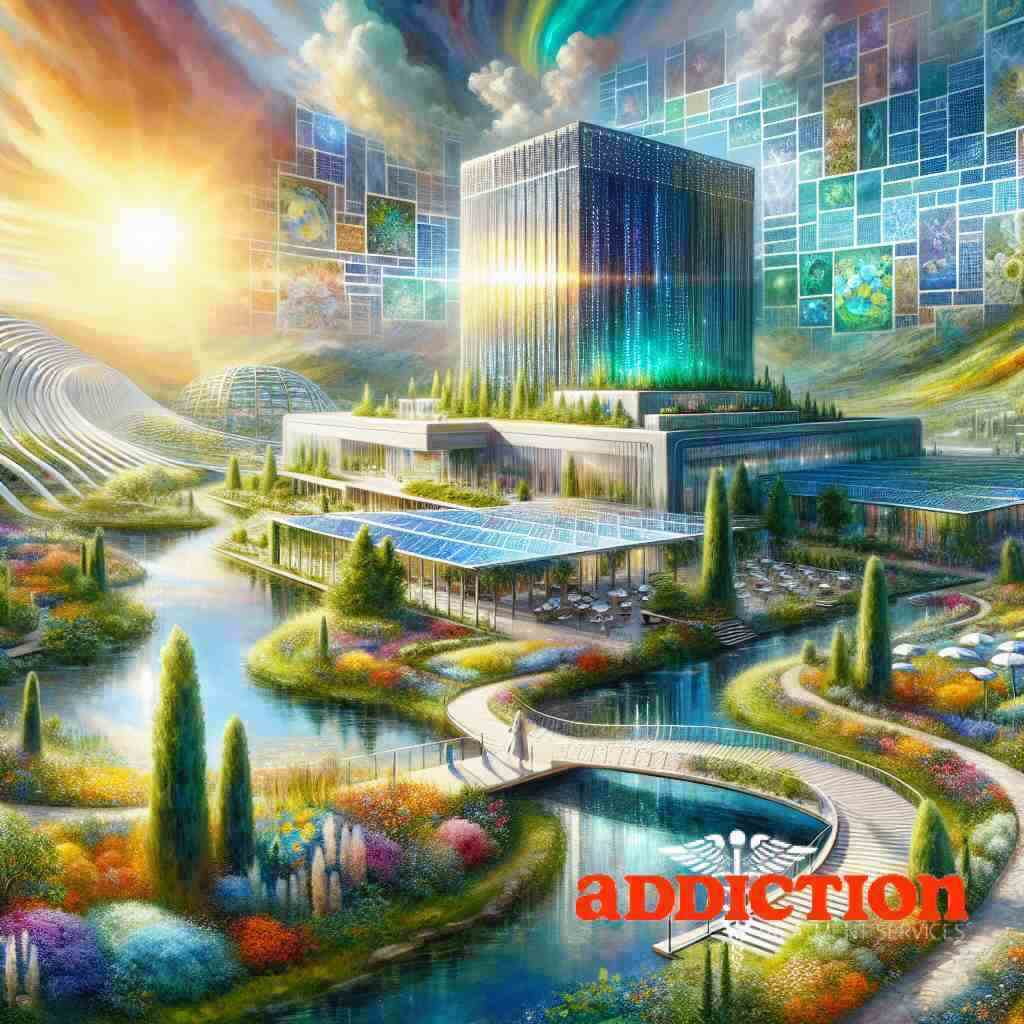 Posted On: 02/04/2025
Posted On: 02/04/2025Introduction to the Detox Evolution
A New Dawn for Detoxification in 2025
As we step into 2025, detoxification has ushered in a transformative era, redefining the landscape of addiction treatment. With the advent of cutting-edge detox treatments, individuals battling substance misuse now have access to comprehensive detox services that are both advanced and personalized. The emphasis on technology-driven detox solutions has never been more pronounced, offering patients innovative withdrawal management options to alleviate the often daunting symptoms affiliated with detox processes. This new dawn in detoxification underlines the importance of integrating state-of-the-art medical advancements with compassionate care.
Reflecting on the Past: Detox Substances & Successes
The journey to modern detoxification methods has been a progressive evolution. Historically, detoxification primarily involved the abrupt cessation of substance use, often without addressing the underlying psychological components. However, recognizing the crucial role of psychoactive drugs in detox has paved the way for more effective treatments. The use of these drugs, combined with supportive therapies, has significantly improved the safety and efficacy of detox programs. By understanding detoxification evolution over the years, we better appreciate the innovative detox therapies in 2025 that focus not just on physical detox but also on mental health center resources that address the whole person.
Key Drivers of Innovation in Detox Therapies
A multitude of factors are propelling innovations in detox therapies today. Chief among these is the integration of pharmacological detox advancements with holistic treatment strategies, ensuring each patient receives a well-rounded approach to recovery. Additionally, there’s an increasing alignment of addiction and psychotherapy connections, which highlights the psychological dimensions of detoxification. Research and technology play pivotal roles, offering insights into the biological, psychological, and social facets of addiction recovery. These drivers are seamlessly converging to enhance the effectiveness of detoxification, supporting the addiction recovery process overview by emphasizing tailored, sustainable detox practices.
Navigating Modern Detox Methods
Advanced Detox Methods: An Overview
In 2025, advanced detox methods are reshaping the landscape of addiction treatment centers. These methods encompass a variety of innovative detox solutions designed to address the complex needs of individuals with substance use disorders. By focusing on personalized detox plans near me, these advanced techniques prioritize the safety and well-being of patients, ensuring a smooth transition from detox to recovery. Moreover, modern detox facilities in Texas are fully equipped with state-of-the-art technology and expert medical personnel to provide unrivaled care. Patients are no longer just passive recipients of care; they are active participants in their recovery, guided by data-driven insights and a compassionate team.
The Rise of Technology-Driven Detox Solutions
Technology is a pivotal force in the progression of detoxification methods. Innovative detox therapies in 2025 are transforming the detox process, allowing for more precise interventions tailored to individual needs. Digital platforms now facilitate continuous monitoring of vital signs and withdrawal symptoms, offering healthcare providers real-time data to make informed decisions. This tech-driven approach not only enhances patient safety but also optimizes the effectiveness of treatment strategies. In states like Florida, emerging innovative detox solutions in Florida integrate these technologies to deliver seamless patient experiences. These advancements underscore the essential role of technology in modernizing detox protocols and ensuring long-term recovery success.
Pharmacological Detox Advancements: What to Expect
Pharmacological interventions have become an integral component of modern detoxification frameworks. By utilizing the role of psychoactive drugs in detox, medical professionals can effectively manage and mitigate severe withdrawal symptoms, reducing the risk of relapse. This approach is not only grounded in scientific principles but is also adaptive to the evolving needs of patients. As we delve deeper into 2025, expect an uptick in the use of personalized medication regimens that cater to each patient’s unique biological and psychological profile. Such advancements are setting new standards in comprehensive detox services that address both the mind and body.
Integrated Detox Strategies for a Holistic Approach
Holistic detoxification is gaining traction as a vital aspect of the addiction recovery process overview. By integrating various treatment modalities-ranging from pharmacological to therapeutic-patients receive a well-rounded approach that addresses all aspects of their addiction. This strategy emphasizes both traditional medical interventions and complementary therapies, such as psychotherapy and mindfulness practices. In Virginia, state-of-the-art detox programs are pioneering such integrated methods, recognizing the importance of treating the whole person, not just the symptoms. As these holistic strategies continue to evolve, they promise to significantly enhance the efficacy of detox programs and support sustainable recovery.
Science and Safety of Detoxification
The Science of Detoxing: Understanding the Body-Mind Connection
The science of detoxification involves understanding how the body and mind interact during the detox process. Detoxification is not merely a physical cleansing of harmful substances but a comprehensive approach that considers both physiological and psychological aspects. Advanced research emphasizes this scientific approach to detoxification, examining the interaction between the brain and body during substance elimination. This connection is vital in developing effective detox strategies that ensure the long-term well-being of individuals undergoing treatment. By focusing on the body’s biological mechanisms and the mind’s psychological responses, detoxification services can offer more sustainable outcomes.
Understanding these dynamics allows healthcare providers to tailor personalized detox plans that address specific needs, leading to better management of withdrawal symptoms and preventing relapse. Such scientific exploration into the detoxification process highlights the importance of employing evidence-based practices, ensuring each step aligns with the overarching goal of achieving a successful recovery journey.
Innovative Withdrawal Management Techniques
Innovative techniques in withdrawal management have revolutionized how addiction treatment centers address detoxification challenges. The introduction of cutting-edge therapies allows for more precise management of withdrawal symptoms, significantly improving patient comfort during the detox process. Digital platforms aid in monitoring and assessing withdrawal progression, providing clinicians with crucial data to adjust treatment plans proactively.
Moreover, these techniques often incorporate pharmacological advances that utilize the role of psychoactive drugs in detox, effectively managing complex withdrawal cases. By offering individualized medication regimens, these methods address the nuanced needs of each patient, thus minimizing discomfort and reducing the risk of relapse. The core of innovative withdrawal management is its focus on compassionate care, ensuring that patients feel supported and empowered throughout their detox journey.
Ensuring Detoxification Safety: Key Protocols in 2025
Ensuring the safety of individuals undergoing detoxification is a paramount concern in 2025. Medical professionals have established stringent safety protocols to mitigate risks and uphold the highest standards of care. These protocols incorporate continuous monitoring of vital signs, facilitating early intervention in case of complications. The implementation of such rigorous safety measures is crucial to protect patients from the adverse effects of rapid substance withdrawal.
Additionally, medically supervised detoxification is a keystone in maintaining patient safety. Healthcare providers are trained to handle emergencies, providing immediate support and intervention when needed. The emphasis on safety does not overshadow the psychological aspects; mental health support is intrinsically woven into these protocols, recognizing the holistic nature of detoxification. Through these measures, patients receive comprehensive care, ensuring their journey to recovery is secure and conducive to long-term sobriety.
Personalized Detox Plans and Future Trends
Crafting Personalized Detox Plans with AI and Data
The integration of artificial intelligence and big data is revolutionizing detoxification in 2025 by enabling unprecedented personalization in treatment plans. AI-driven platforms analyze vast amounts of patient data to tailor detox programs that align with individual needs. This data-centric approach facilitates the development of personalized detox plans near me that optimize outcomes and improve patient engagement. By utilizing predictive algorithms, healthcare providers can anticipate potential challenges during detox, ensuring proactive interventions that support a smooth recovery journey.
AI technology, coupled with historical treatment data, empowers clinicians to refine detox protocols, making them more effective for diverse populations. This innovative approach not only enhances the quality of care but also sets new standards in drug detoxification processes by focusing on evidence-based practices. As AI continues to evolve, its role in crafting tailored detox solutions highlights a future where precision medicine becomes the cornerstone of addiction recovery strategies.
Medically Supervised Detox: A Closer Look
Medically supervised detox remains a critical component of comprehensive detoxification services, emphasizing the importance of professional oversight during the withdrawal phase. By ensuring medical supervision, patients benefit from continuous monitoring and timely interventions that safeguard against complications. This approach is particularly crucial for individuals with severe or complex substance use disorders, where withdrawal symptoms can pose significant health risks.
In 2025, the focus is on enhancing these services by integrating advanced clinical protocols and state-of-the-art monitoring technologies. Clinics offering medically supervised detox ensure that their facilities are equipped to handle emergencies, providing immediate care when needed. Furthermore, these environments blend medical oversight with psychological support, recognizing the intertwined nature of physiological and mental health needs during detox. This holistic perspective ensures that patients not only experience physical safety but also emotional support, facilitating a comprehensive healing process.
2025 Addiction Treatment Trends: Embracing Change
The landscape of addiction treatment is evolving rapidly, embracing innovative approaches that promise enhanced recovery outcomes. 2025 witnesses a convergence of technology, personalized care, and holistic strategies that redefine recovery pathways. The adoption of innovative detox therapies in 2025 underscores a shift towards more integrative models, where cutting-edge advancements complement traditional methods.
Trends indicate a growing emphasis on flexibility, allowing individuals to transition seamlessly between treatment modalities like outpatient care and intensive residential programs. The focus is not just on detox but on fostering long-term resilience through educational workshops and relapse prevention strategies. This trend towards adaptability and resilience is reflective of broader societal shifts towards understanding and accommodating the complexities of substance use disorders in addiction treatment facilities.
Digital Detox Monitoring: A New Era of Care
Digital detox monitoring represents a new frontier in addiction treatment, offering real-time insights that significantly enhance patient care. Advanced wearable devices and remote monitoring systems provide continuous feedback on an individual’s physiological and psychological state, aiding in the management of withdrawal symptoms and overall progress.
These technologies allow healthcare providers to make data-driven adjustments to treatment plans, ensuring that interventions are both timely and effective. By integrating digital tools into detox protocols, facilities can offer a heightened level of personalized care that supports the dynamic needs of patients. The move towards digital detox monitoring not only aligns with technological advancements but also reflects a commitment to embedding technological support as a standard in modern detox facilities. Through these innovations, 2025 sets the stage for a future where addiction recovery is more informed, personalized, and accessible than ever before.
Conclusion: The Road to Recovery
Detoxification Success Stories: Realizing Potential
Detoxification success stories often highlight the transformative power of comprehensive detox services. These narratives showcase individuals who have overcome the challenging phase of withdrawal symptoms, emerging stronger with renewed hope. By focusing on personalized approaches, these stories underscore the effectiveness of detox pathways that consider the holistic needs of the person. The integration of advanced detox methods provides a fertile ground for recovery, enabling individuals to transition smoothly from detoxification to rehabilitation. As more individuals share their recovery journeys, these stories illuminate the potential for healing, fostering a sense of community and support that is essential for sustained sobriety.
Progressive Detox Care and Sustainable Practices
Progressive detox care is characterized by innovative strategies that prioritize long-term recovery through sustainable practices. In 2025, addiction treatment strategies incorporate cutting-edge technologies and a nuanced understanding of detox processes to ensure patient safety and effectiveness. These practices, while rooted in scientific rigor, often embrace a holistic view, acknowledging the importance of treating both mind and body. As treatment programs evolve, there is a growing recognition of the necessity for adaptability in care, allowing for personalized strategies that can adjust to individual progress and challenges. By committing to these sustainable practices, addiction services near you promise a future of recovery that is not only possible but also sustainable.
Looking Ahead: The Future Landscape of Detoxification
As we look toward the future landscape of detoxification, it becomes evident that innovation will steer the direction of addiction treatment services. The emergence of digital detox monitoring systems and AI-driven personalized plans heralds a new era of precision care, setting the stage for more successful recovery trajectories. Furthermore, the emphasis on integrated approaches, which combine traditional holistic practices with modern medical interventions, points towards a comprehensive model of care that addresses diverse patient needs. In this evolving landscape, the role of addiction and psychotherapy connections becomes increasingly significant, ensuring that mental health resources are seamlessly integrated into detoxification protocols. As these trends continue to unfold, the commitment to forward-thinking solutions remains steadfast, shaping a future where detoxification is both effective and accessible to all who seek it.
Frequently Asked Questions
Question: How do advanced detox methods in 2025 differ from traditional detox programs offered at addiction treatment centers?
Answer: Advanced detox methods in 2025 incorporate innovative detox protocols that significantly enhance the treatment process compared to traditional programs. These methods emphasize personalized detox plans and technology-driven detox solutions, which allow for tailored interventions that focus on individual needs. By utilizing state-of-the-art detox programs and integrating digital detox monitoring systems, addiction treatment centers provide a higher level of care, ensuring patients’ safety and comfort during the withdrawal phase. This cutting-edge approach not only improves the immediate detoxification process but also supports long-term recovery.
Question: What role does technology play in the future of detoxification therapy, a s outlined in the Ultimate Guide to Understanding Detoxification in 2025?
Answer: Technology plays a pivotal role in the future of detoxification therapy, as highlighted in the Ultimate Guide to Understanding Detoxification in 2025. It has enabled the development of digital detox monitoring systems and AI-driven personalization of treatment plans, offering unprecedented precision in care. Technology-driven detox solutions facilitate continuous monitoring and data collection, allowing healthcare providers to make informed decisions in real time. This integration not only ensures a high level of patient safety during detoxification services but also optimizes treatment outcomes, making the recovery journey smoother and more effective.
Question: Can Addiction Treatment Services assist with holistic detoxification programs, and how do they align with detoxification breakthroughs in 2025?
Answer: Yes, Addiction Treatment Services is committed to offering comprehensive support to those seeking holistic detoxification programs. These programs represent a significant alignment with detoxification breakthroughs in 2025 by combining traditional medical approaches with complementary therapies such as mindfulness and psychotherapy. Addiction Treatment Services ensures that individuals receive a well-rounded approach to recovery by providing connections to facilities with integrated detox strategies that address both physical and psychological aspects of substance misuse. This holistic perspective is pivotal in enhancing the efficacy of treatment programs and ensuring sustainable recovery.
Question: What are the key safety protocols in place for medically supervised detox in 2025, and how do Addiction Treatment Services ensure they are met?
Answer: In 2025, the key safety protocols for medically supervised detox focus on continuous monitoring of vital signs and immediate response to any complications that may arise during detoxification. Addiction Treatment Services ensures these protocols are met by connecting individuals with reputable detox centers that are equipped with advanced monitoring technologies and staffed by trained medical professionals. These facilities emphasize both physical safety and mental health support, recognizing the importance of addressing the holistic needs of patients. By adhering to these stringent safety standards, Addiction Treatment Services guarantees a secure and supportive detoxification experience, fostering trust and reliability in their services.
Question: How do detoxification success stories emphasize the benefits of personalized detox plans and influence recovery processes?
Answer: Detoxification success stories highlight the transformative power of personalized detox plans tailored to meet individual needs. By focusing on integrated detox strategies and leveraging advanced detox methods, these stories demonstrate how personalized care significantly enhances the recovery process. Patients report smoother transitions from detoxification to rehabilitation, better management of withdrawal symptoms, and reduced risk of relapse. The success stories not only reinforce the effectiveness of comprehensive detox services but also inspire others on the path to recovery, illustrating the potential for healing and sustained sobriety facilitated by Addiction Treatment Services Exploring Addiction Treatment Centers in New York.




